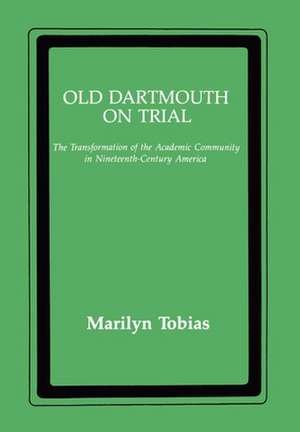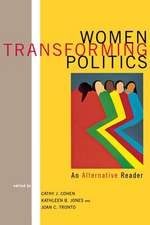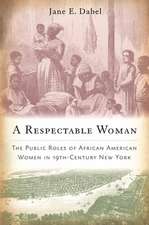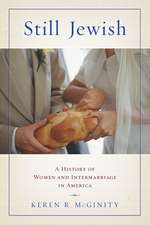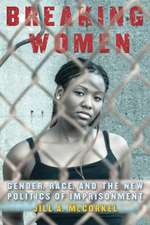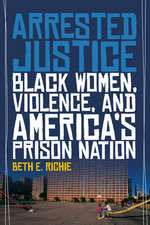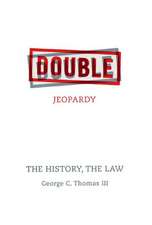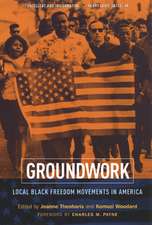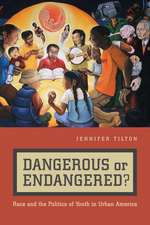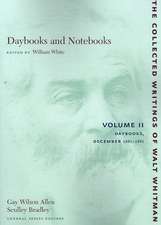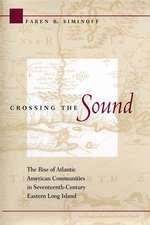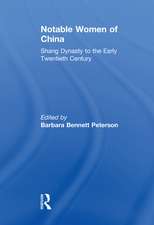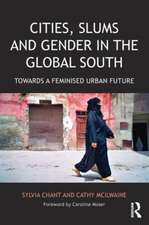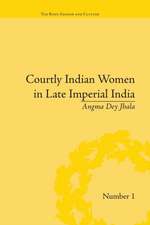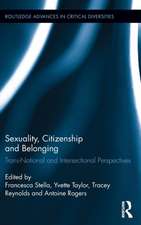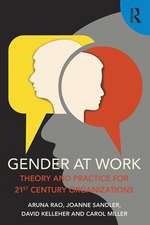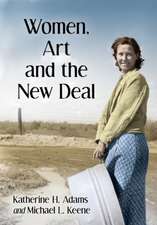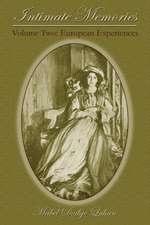Old Dartmouth On Trial – The Transformation of the Academic Community in Nineteenth–Century America
Autor Marilyn Tobiasen Limba Engleză Hardback – 30 noi 2002
Preț: 434.16 lei
Nou
Puncte Express: 651
Preț estimativ în valută:
83.08€ • 86.25$ • 69.28£
83.08€ • 86.25$ • 69.28£
Carte tipărită la comandă
Livrare economică 25 martie-08 aprilie
Preluare comenzi: 021 569.72.76
Specificații
ISBN-13: 9780814781685
ISBN-10: 0814781683
Pagini: 250
Dimensiuni: 162 x 237 x 25 mm
Greutate: 0.54 kg
Editura: Wiley
ISBN-10: 0814781683
Pagini: 250
Dimensiuni: 162 x 237 x 25 mm
Greutate: 0.54 kg
Editura: Wiley
Recenzii
"Stands as 'Exhibit A' in a critical test case, namely, 'Can historical writing be meshed with organizational theory in the systematic study of higher education?' Thanks to Tobias's exemplary work, the verdict is overwhelmingly favorable. . . . By refuting the stereotype of collegiate stagnation, historian Tobias fills in crucial voids that are essential for better understanding of what David Riesman and Christopher Jencks call the "university college" of the mid-twentieth century. . . .This work warns us that we should no longer be satisfied with chronicles of campus events that fail to connect with structural and policy studies
will be most valuable if it reaches an audience of nonhistorians because it provides a superb model for using historical methods and perspective to probe organizational complexities. It is good reading that enhances the 'real world' tasks of institutional research and policy planning."
-- Journal of Higher Education"A significant contribution to the literature documenting American institutions of the late nineteenth century. This cohesive work explores the notion of 'changing community' by focusing on a dramatic episode in Dartmouth's history. While the roots of the controversy may be explained in part by the college's unique legacy, Tobias carefully demonstrates how this model of community conflict is a reflection of the transformation taking place within the larger society . . . will interest not only community historians, but also educators and policy analysts. . . . This fine piece of historical analysis may well serve as a model for similar studies in the histories of community and education."
-- Public Historian"An important addition to a small but growing list of monographs and scholarly articles that are revising our understanding of American colleges in the nineteenth century. Eschewing traditional institutional history, Marilyn Tobias has developed a more imaginative interpretive framework. . . Through comparison and contrast of the public attitudes, group roles, and self-conception of faculty, students, alumni, and trustees of both eras, Tobias demonstrates that Dartmouth underwent fundamental changes in institutional characteristics and educational mission. . . . In significant ways Tobias has broken methodologically with traditional college historians. She has provided us with a number of new insights concerning the nineteenth-century American college, and she has furthered the efforts of certain contemporary historians to place the history of these colleges fully within the context of national cultural and institutional developments."
--Journal of American History"Brings educational history into the mainstream of current American historiography and removes Dartmouth from isolation. By using a community-studies approach and incorporating recent findings concerning the professions, urban life, and the antebellum colleges, the author attempts to explain institutional change through factors outside of the college, to connect higher education to the broader society, and to establish an agenda and, at minimum, a vocabulary for the study of other educational institutions during the age of modernization. . . . The interpretation of the crisis at Dartmouth is attractive and useful. Especially important for researchers is the incorporation of the role of trustees, students, and the scientific-technological faculty."
-- History of Education Quarterly
-- Journal of Higher Education"A significant contribution to the literature documenting American institutions of the late nineteenth century. This cohesive work explores the notion of 'changing community' by focusing on a dramatic episode in Dartmouth's history. While the roots of the controversy may be explained in part by the college's unique legacy, Tobias carefully demonstrates how this model of community conflict is a reflection of the transformation taking place within the larger society . . . will interest not only community historians, but also educators and policy analysts. . . . This fine piece of historical analysis may well serve as a model for similar studies in the histories of community and education."
-- Public Historian"An important addition to a small but growing list of monographs and scholarly articles that are revising our understanding of American colleges in the nineteenth century. Eschewing traditional institutional history, Marilyn Tobias has developed a more imaginative interpretive framework. . . Through comparison and contrast of the public attitudes, group roles, and self-conception of faculty, students, alumni, and trustees of both eras, Tobias demonstrates that Dartmouth underwent fundamental changes in institutional characteristics and educational mission. . . . In significant ways Tobias has broken methodologically with traditional college historians. She has provided us with a number of new insights concerning the nineteenth-century American college, and she has furthered the efforts of certain contemporary historians to place the history of these colleges fully within the context of national cultural and institutional developments."
--Journal of American History"Brings educational history into the mainstream of current American historiography and removes Dartmouth from isolation. By using a community-studies approach and incorporating recent findings concerning the professions, urban life, and the antebellum colleges, the author attempts to explain institutional change through factors outside of the college, to connect higher education to the broader society, and to establish an agenda and, at minimum, a vocabulary for the study of other educational institutions during the age of modernization. . . . The interpretation of the crisis at Dartmouth is attractive and useful. Especially important for researchers is the incorporation of the role of trustees, students, and the scientific-technological faculty."
-- History of Education Quarterly
